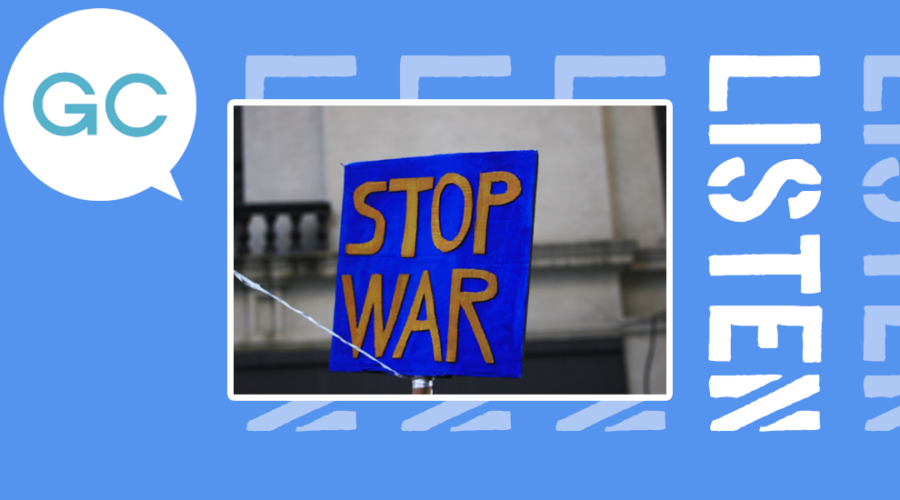Throughout history, music has echoed the pain, resistance, and unanswered questions that war leaves behind. These songs don’t just entertain — they confront, protest, and remember.
From Vietnam to the Middle East, from global fears to personal grief, each track in this list captures a different face of conflict. Whether through raw lyrics, haunting melodies or powerful symbolism, these artists dared to turn noise into meaning.
“Zombie” by The Cranberries
Released in 1994, “Zombie” is one of the most emblematic songs of the Irish band The Cranberries. Written by vocalist Dolores O’Riordan, the song is a protest against the violence of the conflict in Northern Ireland, specifically inspired by the 1993 Warrington bombing, where two children were killed.
With a more aggressive sound than their previous ballads and O’Riordan’s powerful voice, this song became an anthem denouncing the brutality of war and the suffering of innocent victims.
“War Pigs” by Black Sabbath
Released in 1980 as part of the album Never for Ever, “Army Dreamers” is a melancholy ballad that tells the story of a mother mourning the loss of her son, who died during his military service.
The song addresses themes of loss, regret and the futility of war, highlighting the perspective of those left behind to mourn fallen soldiers. With a gentle melody and delicate instrumentation, Kate Bush offers a poignant reflection on the human consequences of armed conflict.
“The Dogs of War” by Pink Floyd
Included on the 1987 album A Momentary Lapse of Reason, “The Dogs of War” presents a shady view of the politicians and businessmen who profit from war.
With a dark atmosphere and intense instrumentation, the song depicts these “dogs of war” as ruthless figures who manipulate and destroy in pursuit of power and wealth. It is a sharp critique of the corruption and greed that often drive war conflicts.
“Masters Of War” by Bob Dylan
Included on the 1963 album The Freewheelin’ Bob Dylan, “Masters of War” is one of Dylan’s most biting songs. With a simple melody based on a traditional song, the lyrics are a direct accusation of arms manufacturers and war profiteering politicians.
Dylan doesn’t mince words, even wishing these “masters of war” dead, reflecting the anti-war sentiment of the time and establishing his reputation as a spokesman for a disgruntled generation.
“Civil War” by Guns N’ Roses
Introduced in 1990 during a benefit concert, “Civil War” was later included on the 1991 album Use Your Illusion II. The song is a reflection on the frivolity of war and how internal conflicts can tear a nation apart.
With references to figures such as John F. Kennedy and Martin Luther King Jr, Guns N’ Roses offers a powerful critique of violence and injustice in the world.
“The Unknown Soldier” by The Doors
Released in 1968, “The Unknown Soldier” is The Doors’ response to the Vietnam War. The song describes the indifference with which many Americans watched the daily news about the conflict, turning the death of soldiers into something routine.
With sound effects that simulate gunfire and executions, the band criticizes the dehumanization of war and society’s apathy towards the loss of human life.
“Eve of Destruction” by Barry McGuire
This 1965 song, performed by Barry McGuire, became a protest anthem during the 1960s. Written by P.F. Sloan, the lyrics are a scathing critique of world politics, the Vietnam War and the nuclear threat.
Despite being censored on several stations for its controversial content, “Eve of Destruction” reached number one on the charts, reflecting the discontent and concern of a generation on the brink of change.
“Orange Crush” by R.E.M.
Released in 1988 as part of the album Green, “Orange Crush” is a song that addresses the U.S. involvement in the Vietnam War. The title refers to an herbicide used by the U.S. military during the conflict.
Although the lyrics are somewhat abstract, the song evokes images of conscription and the soldiers’ experience of war, highlighting the lasting impact of this period on American society.
“Gimme Shelter” by The Rolling Stones
Released in 1969 as the opening track on the album Let It Bleed, “Gimme Shelter” captures the turbulent atmosphere of the late 1960s. The song, featuring Mick Jagger’s vocals and the powerful contribution of backing vocalist Merry Clayton, evokes a sense of impending disaster, reflecting themes of war, violence and despair.
Its dark tone and lyrics suggest that war and destruction are always just around the corner, with everyone needing a shelter from the storm.
Image: Tong Su

